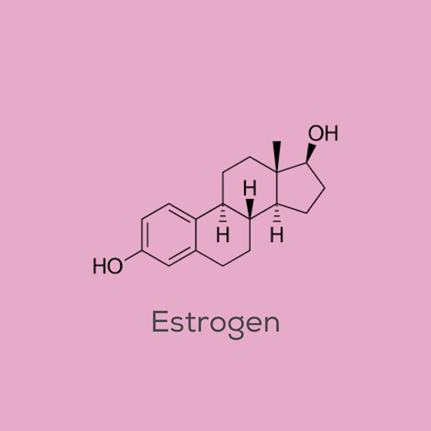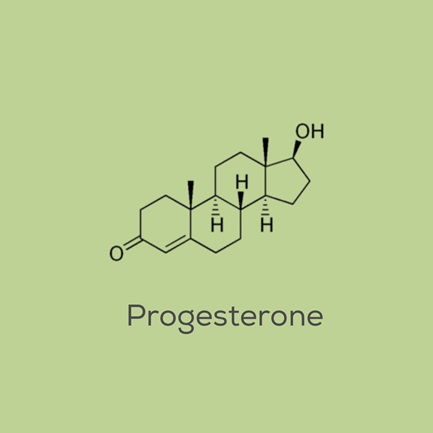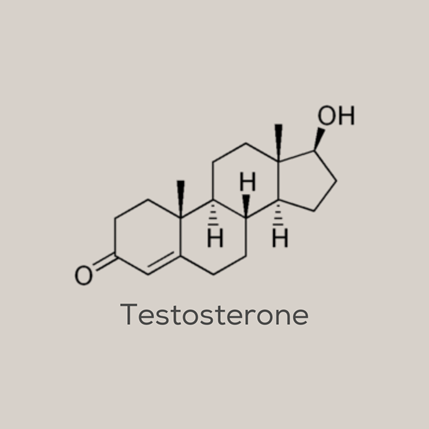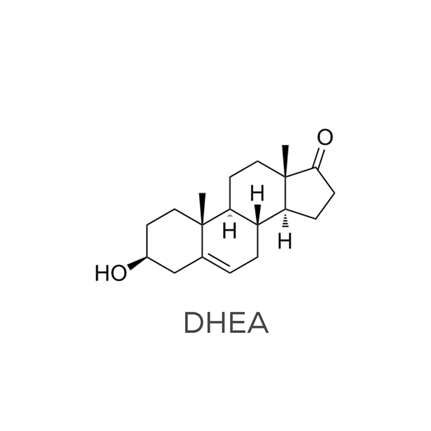Estrogen Deficiency

Hot flushes / Night sweats
You can feel a sudden sensation of heat spreading through your body. It often rises from your chest. It happens randomly during the day. The symptoms can include sweating, flushed skin, anxiety and increased heart rate. In some instances, you can feel faint.
Night sweats often precede day flushes. These can occur sporadically years before you notice that you have symptoms related to your menopause. The severity varies amongst women. You can experience slight dampness or mild sweating behind your neck and chest area as you awaken in the morning or you can feel drenched, resulting in the need to change your night clothes.
Therefore, sleep can be severely disrupted which can result in reduced energy levels, less focus and an inability to cope with your daily routine. In women who have quite a regular menstrual cycle, this often occurs a week or two before the start of their period. Other symptoms of estrogen deficiency include:
- Vaginal dryness
- Dry gritty eyes
- Recurring or persistent urinary tract infections (UTI) or cystitis
- Worsening of urinary incontinence
- Dry skin, appearance of ageing and wrinkles
- Thinning hair
Progesterone Deficiency
Mood changes, anxiety, low mood/depression and irritability
Progesterone is known as the mood stabiliser. From years before a woman reaches menopause, her cycles may become anovulatory, which means that she does not ovulate with every menstrual cycle. This results in low progesterone levels which can cause anxiety, low mood and irritability.
Sleep disturbances
Progesterone is very important for the maintenance of sleep. Women who lack this hormone, often find that they wake in the middle of the night.
Achiness
Progesterone has an anti-inflammatory property, and therefore when it is low, women can experience muscle and joint aches and pains.
Reduced effectiveness of estrogen
In order for estrogen receptors to mop up the estrogen in a woman’s bloodstream, they need progesterone. It is therefore possible for a woman to experience hot flushes when her levels are within “the normal range”.

Testosterone Deficiency
Low sex drive (libido)
Testosterone is important for a woman’s sex drive. Low libido is often one of the first symptoms she notices during the time of perimenopause. This is because the small quantity of testosterone she produces is used up by “vital” organs further from the pelvic area.
Other symptoms of testosterone deficiency are:
- Lack of focus and concentration
- Deteriorating memory
- Deteriorating muscle tone

DHEA Deficiency
Lack of sense of wellbeing and enjoyment
DHEA (dehydroepiandrosterone) is a hormone secreted by the adrenal glands. DHEA is necessary for energy level and sense of wellbeing. Women who are low in this hormone often feel tired and lack in enthusiasm.
Cortisol is another hormone released by the adrenal gland and is known as the stress hormone. The levels of this hormone are high first thing in the morning to help us cope with our daily routine. The level should drop smoothly as the day goes by and should reach its lowest level by bedtime. In our modern lives we often see disturbances in this smooth curve. This can interfere with our hormonal balance, our ability to cope with stress and our sleep.

